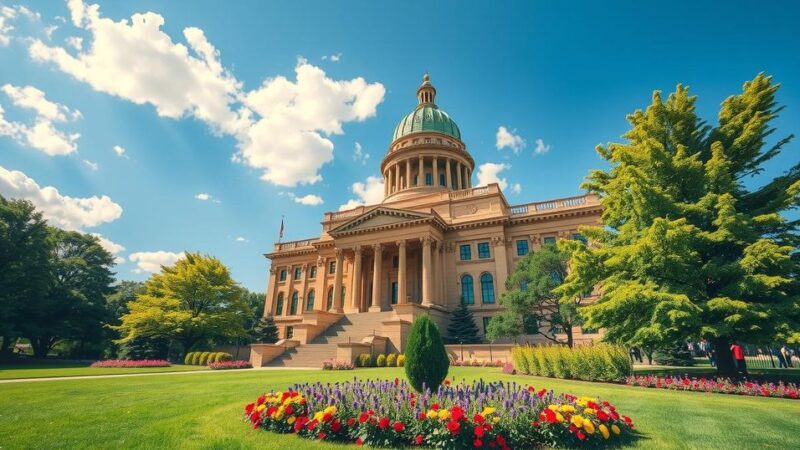Gabon is voting on a new constitution aimed at facilitating democratic reforms following the military coup that removed President Ali Bongo. The proposed changes include presidential term limits and the establishment of more equitable governance structures. Approximately 860,000 voters are registered to participate, and many express cautious optimism about the potential for a political transformation, though concerns persist regarding the military’s intentions.
Gabon is currently undergoing a pivotal referendum to determine the adoption of a new constitution, a significant move following last year’s military coup that ousted President Ali Bongo Ondimba. This draft charter proposes considerable reforms, including the establishment of presidential term limits, which aim to transition Gabon towards democratic governance after 55 years of dynastic rule. Approximately 860,000 registered voters are expected to participate in this electoral process.
The transitional leader of Gabon, General Brice Oligui Nguema, has been actively encouraging public support for the proposed changes, asserting that they represent a commitment to reshaping the future of Gabon. The constitution requires a majority for approval, ushering in mechanisms to prevent hereditary succession and limiting presidential terms to seven years. Voter sentiments regarding the necessity and clarity of the changes appear divided; some embrace the reforms, while others criticize the draft charter as reinforcing authoritarian rule.
Despite the urgent call for a democratic transition following the controversial overthrow of Ali Bongo, skepticism persists concerning the true motivations behind the new charter. Observers fear that the transitional government may be consolidating power rather than genuinely facilitating a return to civilian governance. The military’s recent grip on power raises questions about whether the constitutional changes will effectively promote meaningful democracy or merely serve as a facade.
Voting commenced at various locations across Gabon, with citizens expressing a mix of hope and hesitance about the implications of the new constitution. As the country awaits the final results from the constitutional court, the significance of this referendum may well dictate Gabon’s political trajectory in the coming years.
Gabon has undergone significant political upheaval marked by the ouster of President Ali Bongo Ondimba in August 2023, following allegations of electoral fraud. With the military now at the helm under General Brice Oligui Nguema, the proposed constitutional reforms serve as a catalyst for establishing democratic norms and curbing dynastic leadership in a country that has been ruled by the Bongo family since 1967. The proposed constitution’s inclusion of term limits and the elimination of the prime minister’s role signal a movement towards a more equitable governance structure. The context of voter participation and public perception will be critical to understanding the referendum’s impact on Gabon’s future political landscape.
The referendum in Gabon marks a crucial juncture in the nation’s journey toward modernization and democratization. With a proposed constitution that promises term limits and a reduction of oppressive governance structures, the outcome is particularly significant for Gabon’s political health. However, the legitimacy and intent behind the military government’s efforts remain in scrutiny. Voter participation over the next few days will define whether Gabon truly embarks on a path to democratic reform or continues under authoritarian pretexts. It is imperative that the results are reflective of the population’s will in seeking genuine governance change.
Original Source: www.aljazeera.com






